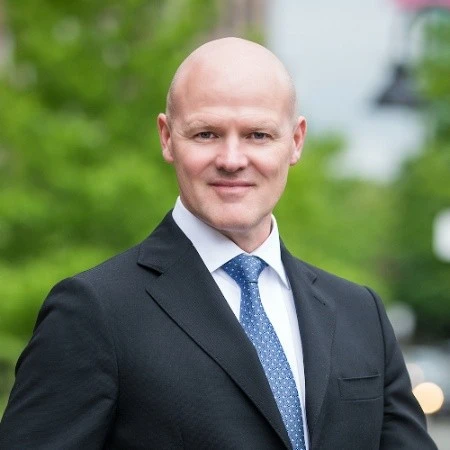The Power of Belief in Happiness
The Power of Belief in Happiness
Do you believe, brothers and sisters? Do you believe in the power of happiness? Can you really believe that you can be happier? It is a fundamental challenge. I think people, especially grown adults, kind of have become accustomed to whatever their level of well-subjective well-being that they feel. And they don’t always believe that they can be a whole lot happier. Life is what it is, and yet that’s frustrating a little bit. Because if you know the science of happiness, we know that people, as individuals, get a lot more success from their lives when they’re filled with positive emotions. They get better careers, better health, better relationships. They’re even smarter. There’s all kinds of really good bona fide science showing happiness leads to success. And the same principles apply perfectly well to organizations. Great studies, meta-studies, so their studies of studies, demonstrate that organizations that attempt to create more positive affect, that is, more positive emotions, less anger, more job satisfaction, more engagement, those organizations that are successful in doing that get bottom line results: more productivity, more profitability. And it’s through things like improved customer service, more engagement amongst the staff, more trust, less sick time, all kinds of things. So, happiness leads to success both personally, professionally, and organizationally. But do we believe that we, or my organization, can get more happiness? Well, that’s a fundamental question. And today, I have six priceless, life-changing tips to bring more happiness and more success into your life. So, stay tuned.
As a coach, public speaker, and best-selling author, I teach topics just like this one all around the world. So, stay tuned, and I’ll give you practical tools that you can use to make both yourself and those around you both happier and more successful. So, the people who do this work, who do the positive psychology research, often have funny labels. And what they call happiness is often subjective well-being. This personalized, individualized experience of whether I’m well or not. And if I say yes, I have a lot of subjective well-being, in layman’s terms, we say that person believes that they’re happy. And then, you can even research that shows that people who believe they’re happy, if you verify that with friends and co-workers, it turns out that more often than not, these self-assessments are accurate. So, subjective well-being is what we’re after. And the question has often been, are we stuck with whatever level of personal happiness, subjective well-being, that is just present in our everyday lives? And the answer is most certainly that we can learn to be happier, that the interventions that positive psychology has learned work. That people can increase their levels of happiness and therefore get more success and more professional attainment. But if you have no belief, and you take no action, you make no investments in growing your personal happiness, guess what? You won’t be happier. And you won’t get some of that success that you want. And often, people, kind of in a wishful thinking way, just want to wait for circumstances to change. You know, when I get that promotion, or if I win the lottery, or if I get married and find the right man or woman, or if I move to the new city, or if I could just have a bigger apartment, or whatever those circumstances were looking for. That if those were to change, then I’ll be happy. And then, you know, if I follow the science, then I might get more success in my life. But unfortunately, that is very unlikely to take place. The science shows really clearly that our external circumstances of our life have relatively little impact in terms of our overall levels of happiness. There’s a principle called hedonic adaptation. This is the idea that when I win the lottery, I get an increased spike in happiness. And then the science shows, research shows, about two years later, I’m back to my original level of happiness. And the same is true if I become paralyzed. Well, it’s totally depressing and feels like my life is ruined, and yet two years later, I’m back to my left previous levels of personal happiness. So, the circumstances, external to ourselves, do not make a long-term difference in our happiness. So, do not count on that. Getting rich doesn’t make a long-term difference. Getting the corner office, achieving greater status, the house in the suburbs with the 2.2 kids and the white picket fence, will not make you happy in the long run. Instead, we have to take responsibility for our own cognitive and behavioral actions that make us happier. And there’s a lot I could say about that. But for today, to be practical and concrete, I have six real, scientifically proven tips to make your life more successful via increasing the positive emotions in your life. Remember, it’s just the cumulative sum of your experiences. So, as you increase the experiences, not the circumstances that you adapt to, not the genetic heritage that you were born with, both of those things make a difference. But the biggest one that’s within your control that makes a real difference is your behaviors to accumulate the right kinds of experiences where positive feelings are accrued. And here are six tips.
The first one is contemplate your best self. Super easy. Sit down with a piece of paper and say, “Five years from now, my best life would look like…” and then write it out. It can be a bit of a fantasy. It doesn’t have to be 100% accurate, but keep it in the realm of possible. I’m not going to grow wings and fly, but I’m going to get a job promotion, improve my relationship with my spouse, blah, blah, blah. Contemplate your best life. Second tip: cultivate gratitude. I’ve taught this technique over and over again. It’s one of the best techniques proven by science. Every single day, at the same time, write down three things that you’re grateful for. Three things that have gone well from your past 24 hours. It’s that simple. Every day, I contemplate what went well in the past 24 hours, and I write them down. The science is not that just this will make us feel good in that moment but it’ll train our brain to be looking for things to include on this list. Make sense? That’s neuroplasticity at work. Three: be kind. There’s great science behind altruism, how there’s an evolutionary basis. I’m not going to explain it today why altruism probably makes us happy, even though we do something for somebody else and there’s not necessarily an immediate payback, but it makes us feel good. So, be kind. Four: reminisce on happy life events. Past events that made you happy. A great technique for this is to bring up your photo album and have it play on your computer on the screensaver so that you’re frequently reminded of past events in your life, people, times, experiences, things you did that made you feel great. Bring those up. You can also formally bring this into your calendar, and I suggest you might do it as soon as you’re finished watching this video. Schedule a time, sometime this week, a half hour or so, where you’re going to intentionally reminisce about past happy experiences. Number five: savor.
Have all kinds of power in your life. You can use it in service of making you happier. You can have more well-being, and when you do that, you’ll find you’ll have more career success, you’ll have better health, and you’ll have better relationships. Good luck on your journey towards greater happiness, and if you want more of these kind of techniques and tips, subscribe to this channel.
I’m Paul Krismer. Thanks for watching. You can be happier and more successful. Be well everyone, until next time.























